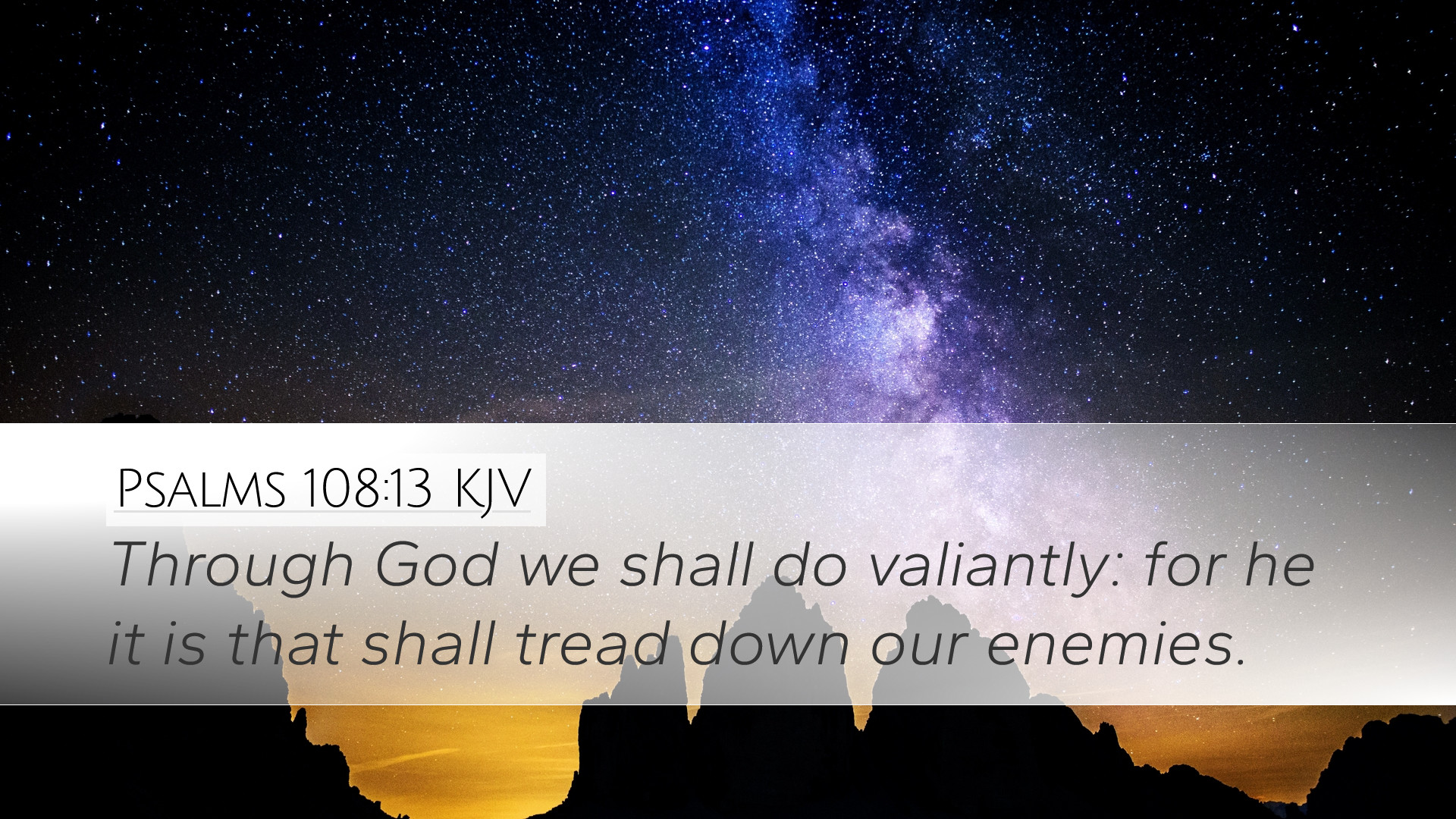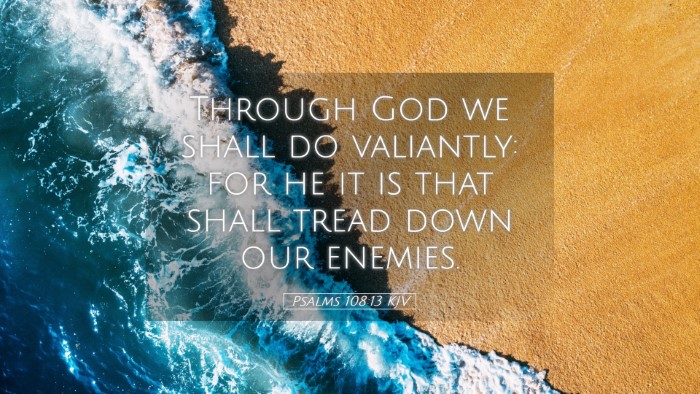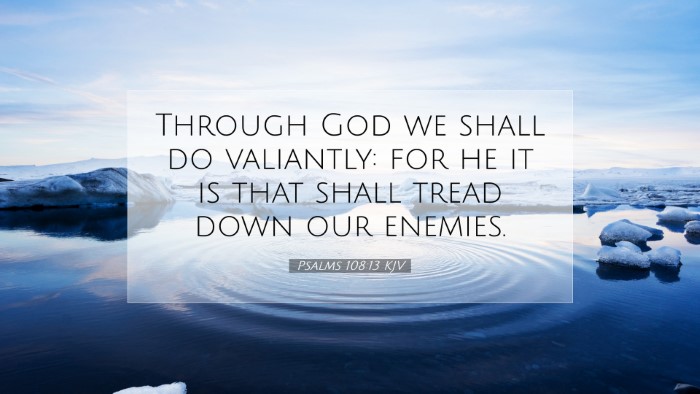Psalms 108:13 - A Commentary
Verse: "Through God we shall do valiantly: for he it is that shall tread down our enemies." (Psalm 108:13, KJV)
Introduction
This verse serves as a powerful proclamation of faith and divine assistance. The psalmist draws upon earlier themes of dependence on God, highlighting that victory over enemies is not through human strength but through divine intervention.
Contextual Overview
The context of Psalm 108 is crucial in understanding its message. This Psalm is a combination of previous psalms, particularly Psalm 57 and Psalm 60, and serves as a declaration of confidence in God, focusing on His sovereignty and faithfulness. The psalmist aligns the need for divine help with the acknowledgment of God's omnipotence.
Insight from Commentators
Matthew Henry's Commentary
Matthew Henry points out that the essence of this verse emphasizes the reliance on God for strength. He remarks that the phrase "Through God we shall do valiantly" suggests that any success in battle—or life’s challenges—is predicated not on human effort but on trust in God’s might. Henry explains that the psalmist acknowledges God's role in leading the charge against the enemies, thus reminding believers that it is God, rather than human capability, that secures victories.
Albert Barnes' Notes
Albert Barnes expands on the theme of divine assistance in this verse. He states that victory is assured “through God” which underscores the belief that God is actively involved in the struggles of His people. Barnes highlights that the phrase "he it is that shall tread down our enemies" serves as a reminder that it is God alone who has the authority and power to crush adversaries. This assertion leads to the conclusion that believers should maintain faith and not succumb to fear, as God has already assured them of victory.
Adam Clarke's Commentary
Adam Clarke provides a practical reflection on how this verse applies to the daily lives of believers. He emphasizes the importance of God as the source of courage and valor. Clarke interprets the word "valiantly" as indicating a bold and courageous spirit, which is only possible through reliance on God’s power. He asserts that one must engage in fervent prayer and a committed relationship with God to experience the fullness of this promise. Clarke’s insights remind us that spiritual warfare requires divine empowerment to venture into the battles we face in life.
Theological Implications
The theological ramifications of Psalm 108:13 are significant. This verse centers on the principle of divine sovereignty over human affairs. It reinforces the idea that God is the ultimate warrior who upholds His covenant people. The implication here is twofold: first, believers are called to trust in God's capability to act on their behalf, and second, they must prepare themselves spiritually for the battles they face. The verse supports the notion of divine predestination of victory — those who align themselves with God can expect His intervention in their struggles.
Application for Today
For pastors, students, theologians, and scholars, Psalm 108:13 serves as a rallying call to trust in God's power amid contemporary challenges. It invites those in leadership to instill confidence in their congregations regarding the need for divine strength. This applies especially in faced adversities, whether personal or communal, such as moral decline, societal injustices, or global conflicts. The verse serves as an affirmation that believers are never alone in their battles; God fights with and for them.
Conclusion
Psalms 108:13 encapsulates a profound truth concerning the believer’s relationship with God and the nature of spiritual warfare. In a world filled with uncertainties, the psalmist’s declaration reminds us that our courage and assurance come from our trust in God. As we tread through life's challenges, may we hold fast to this promise and live in the confidence that through God, we indeed shall do valiantly; for He is our strength and deliverer.


